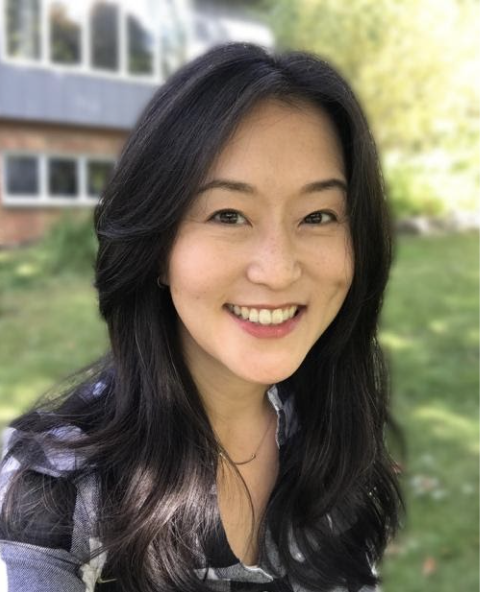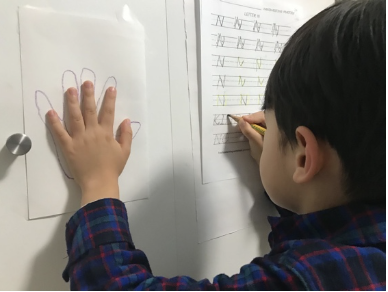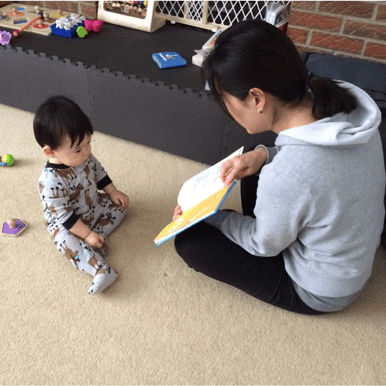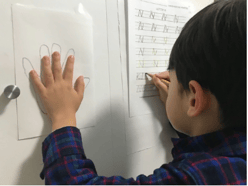Early Action Is Key to Getting Support for Your Autistic Child
I’m the parent of D, a sweet, loving, and smart little boy who happens to be autistic. In our family, we accept and embrace autism for what it is: a different way to experience the world. I am committed to creating a safe, respectful world where he can be himself. But I also accept the reality that I must prepare him for a world made of brains different than his. This post is for parents who think their child might be autistic and are not sure what to do next.
|
|
The Early Inklings of Worry
If you’re reading this, you’re likely wondering, “Is my child autistic?” Maybe your search history contains things like:
- “Autism symptoms”
- “Signs of autism”
- “Child not speaking at age ___”
Something about how your little one is developing has you worried. Maybe they’re behind siblings or peers in reaching milestones. Or perhaps a healthcare provider, teacher, or relative has suggested an evaluation. If that person has experience with autism or works with autistic children, take the suggestion seriously. Research shows that children have better outcomes when they get early diagnosis and interventions. Too often, parents have been encouraged to “wait and see,” which does nothing to help a child who needs support. I know what that’s like because I tried “wait and see,” and if I could go back in time, I would have acted sooner.
|
Photo credit: Carol Masiclat |
Address Your Feelings So You Can Get in the Game
Being confronted with the possibility that your child is different can be frightening. For too long, my fear prevented me from getting my son the support that helped him become the happy and successful kindergartener he is today. An autism diagnosis is not a bad thing; it’s the beginning of the journey to understand your child’s needs.
I first started wondering about my son’s development when he was three. He was way ahead in some areas (reading, visual processing, memory, math) but delayed in others (motor skills, potty training, speech). Friends and relatives assured me that kids develop at their own pace, and boys usually speak later. Early on, my husband believed some skills were simply emerging before others. He had a point. By age three, D read books his class is reading now. I was proud of my little scholar.
But his progress with speech kept me up at night. While D could read, he spoke very little. And he would sometimes get extremely upset and melt down. It’s horrible to see your child distressed and not be able to soothe him, despite your best efforts. When D did speak, he recited lines from books, shows, and movies. I later learned this was called echolalia. It’s common among autistic people, serves an important purpose, and sometimes continues into adulthood. Almost every discussion of echolalia referred to autism.
I was afraid. I knew nothing about autism, which fueled all the worst-case scenarios I could imagine. It did not help that much of what I read pathologized autism, amplifying my worries. Would a label give license to teachers to underestimate him or classmates to be unkind? Would D be denied opportunities in his future because of a diagnosis? But when a speech evaluation recommended we check for autism, I knew I could deny it no longer.
Evaluation and Diagnosis
We waited too long. The next available appointment with the developmental pediatrician in my city was a year away. (Waitlists this long are typical in many cities.) While we waited, I took a deep dive into autism from as many angles as I could: I read books on education, policy, and memoirs of autistic adults. Some were helpful, some made me feel outraged, and some were heartbreaking. (I’ve listed the most inspiring and useful books below.)
Ten months later, the appointment day arrived. At the end of the visit, the doctor told us D could be described as having Asperger’s Syndrome, if the term were still in use by diagnosticians today. That meant he had moderate support needs, and provided we stayed attentive to them, he would do just fine in school and life. For the first time in about a year, I didn’t feel afraid. I felt like a fog had lifted. I knew what we needed to do, and I was ready to get to it.
Empower Yourself With Knowledge
The more familiar you get with something, the less scary it is, and a key moment for me was when I recognized my son’s autism for what it was: neurological difference. It helped me hone in on what adjustments and accommodations he needed to be at his best. I still remember the a-ha feeling I had when I heard the expression: “Autism is not a processing error. It’s a different operating system.” I spent more time learning about neurodiversity and sought advice from autistic adults on how I could best support my son.
Informed Advocacy for Your Child’s Needs
Evaluations with speech, physical, and occupational therapists revealed that D needed services in each of those areas. He qualified for all of them through school. Some of the therapy sessions took place in our home, and I learned so much from them. When we started using visual schedules, sensory items, and movement breaks, we noticed a difference in the frequency and intensity of struggles. D seemed more relaxed and had more fun. It was so rewarding.
|
Photo Credit: Carol Masiclat |
Get Customized Services, Seek Other Necessary Evaluations
Depending on your child’s specific set of abilities and challenges, your doctor may recommend additional kinds of therapies, such as behavioral therapy, social skills training, or communication approaches using picture cards or an augmented and alternative communication device (AAC). Research the therapy methods and providers to know if they’re right for your child. If something doesn’t feel right or your child seems distressed, trust your gut and discontinue it.
Autism sometimes comes with other conditions (called co-morbidities), such as epilepsy, ADHD, anxiety, gastrointestinal, or sleep disorders. An autism diagnosis can sometimes be the route by which you learn about other ways in which your child is suffering and help them get relief. This is especially important for kids who do not yet communicate.
Stay Engaged and Positive
It’s been two years since D’s diagnosis. He has come such a long way and I’m so proud of him. I’m proud of all of us: my family, a dedicated team of therapists, and teachers all championing D’s growth together. Last month he told me a knock-knock joke, and the punchline made no sense. It was the best laugh I had in ages. Most importantly, my son is relaxed and happy.
We could not have made this achievement by denying the challenge. There will be more ahead, and we’ll just keep doing our best. Your child has a unique set of strengths and challenges, too, because that’s how autism is. That uniqueness is what makes us human. Our quest as parents is to help our kids become adults living with dignity and purpose after we’re gone. I wish you the best on your journey.
An Action Plan for the Path Ahead
- Ask your pediatrician for a referral to see a developmental specialist for evaluation. Your wait can vary depending on where you live.
- Connect with autistic adults to hear about their experiences and see the world from their point of view. Value their perspective on how to support autistic children.
- Learn about autism from current, scientifically-backed information sources. Start at your library. Or ask your pediatrician for guidance.
- Build a network of allies. Look for a local support group of families or caretakers of autistic kids. They will become your rock. They’ll also give you valuable localized intel on everything from schools and teachers to which dentists in town are sensitive to special needs. Parents of older kids will be an invaluable source of wisdom and support.
- Become a silo-breaker. An interdisciplinary approach to therapies is a good way to ensure that you aren’t missing anything. A holistic attitude keeps everyone focused on a child, not a set of symptoms or behaviors.
- Learn about the special education system and your rights. Your child may get an IEP or a 504 plan to support their needs at school. Learn the basics of how they work before you sit down at the table.
- Believe in yourself and your child. Presume competence. And remember, even when things get hard, you are the parent your child needs.
Recommended reading:
- Uniquely Human: A Different Way of Seeing Autism, by Barry Prizant PhD
- Neurotribes: The Legacy of Autism and the Future of Neurodiversity by Steve Silberman
- The Autistic Brain: Thinking Across the Spectrum by Temple Grandin and Richard Panek
- What Science Tells Us About Autism Spectrum Disorder by Raphael A. Bernier PhD, Geraldine Dawson PhD, and Joel T. Nigg, PhD
- Thinking in Pictures by Temple Grandin
- The Reason I Jump: The Inner Voice of a Thirteen-Year-Old Boy with Autism and Fall Down Seven Times, Get Up Eight by Naoki Higashida
- Beyond Behaviors: Using Brain Science and Compassion to Understand and Solve Children's Behavioral Challenges by Mona Delahooke
- Positive Parenting for Autism: Powerful Strategies to Help Your Child Overcome Challenges and Thrive by Victoria M. Boone, MA, BCBA
- NOLO’s The Complete IEP Guide: How to Advocate for Your Special Needs Child by Lawrence M. Siegel
What are your child’s strengths or interests? How can you leverage or incorporate them in teaching other skills?

Carol Masiclat
Carol Masiclat is a freelance writer who spent the early part of her career working in higher education. She has a Bachelor’s degree in English from the University of Virginia and a Master’s degree in journalism from Syracuse University. She is the mother of an amazing six-year-old autistic boy. She believes in creating room in the world for people of all abilities.







